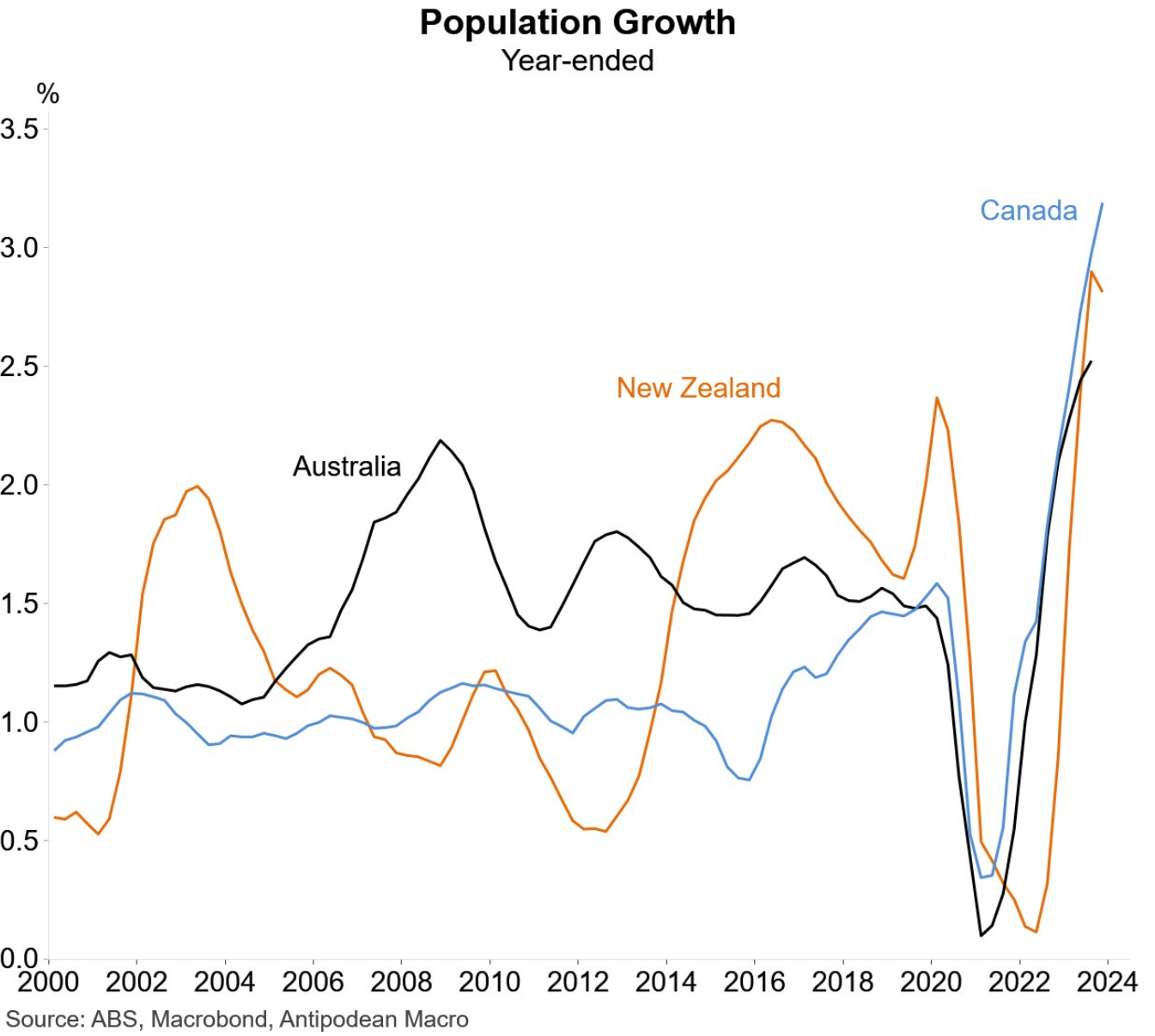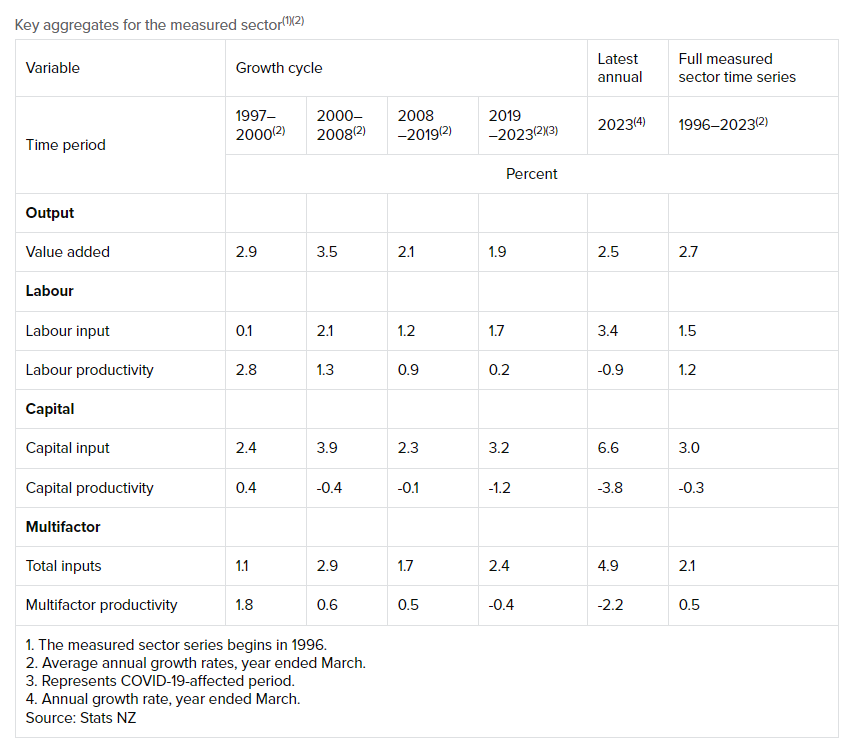Statistics New Zealand has released data showing that productivity has collapsed amid the record surge in net overseas migration.

“Inputs rose at a higher rate compared with outputs in the year ended March 2023, resulting in decreases in both labour and multifactor productivity”.
“Labour productivity fell 0.9%. Labour productivity captures how output relates to changes in labour inputs. A 3.4% increase in labour inputs over the year contributed to a 2.5% rise in output”.
“A fall in labour productivity means that we are producing less output per hour of labour”, national accounts industry and production senior manager Ruvani Ratnayake said”.
“Multifactor productivity fell 2.2% over the year ended March 2023. This measure takes both labour and capital inputs into consideration”…
“Capital productivity fell 3.8%, reflecting higher rises in capital inputs compared with output”.

The collapse in New Zealand’s productivity at least partly relates to “capital shallowing”, which occurs when labour inputs (via net overseas migration) grow faster than the growth in business investment, infrastructure investment, and new housing supply.
The same phenomenon has occurred in Australia and Canada, which have run similar mass immigration policies.
In response, the newly appointed National Government has announced immediate changes that tighten visa rules to lower “unsustainable” immigration and improve quality and productivity:
“Immigration minister Erica Stanford announced on Sunday changes to the accredited employer worker visa (AEWV), the main temporary work visa, which was introduced in mid-2022 to help fill workforce shortages after the pandemic”.
“The government’s changes to the scheme would include introducing English-language requirements for low-skilled jobs and setting a minimum skills and work experience threshold for most employer work visas. The maximum continuous stay for most low-skilled roles will also be reduced to three years from five years”.
“The government is focused on attracting and retaining the highly skilled migrants such as secondary teachers, where there is a skill shortage”, Immigration minister Erica Stanford said in a statement.
“At the same time we need to ensure that New Zealanders are put to the front of the line for jobs where there are no skills shortages”.
“By having an English-language requirement migrants will be better able to understand their rights or raise concerns about an employer early”, Stanford said.
Slowly but surely, Anglo nations are realising that running large, mostly unskilled migration systems was a bad idea and is detrimental to productivity and living standards.

